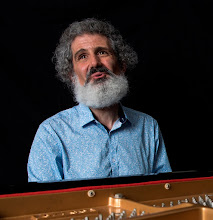YOU NEED A VERY SPECIAL DRUMMER FOR IT TO SOUND BETTER THAN NO DRUMS
Western non-classical music has evolved to the point where a composite instrument called a drum kit (or set) consisting of several drums and several cymbals of varying sizes is played continuously with four limbs throughout the entire rendition of any given piece (with occasional brief exceptions).
This is quite unusual in the history of music across all cultures. The density of a multi-drum/cymbal set-up and the unique application of four limbs using pedal mechanisms for the feet is equivalent to at least two instrumentalists playing drums with hands. The cymbals would be another player. Leaving aside the special case of actual music for drums alone this use of a drumset in a wider instrumental ensemble is an unusual instrumental balance. Continuous percussion in folkloric musics might come from a single tambourine or hand drum playing with several melodic instruments rather than what amounts to maybe the density of three traditional percussionists pitted against an equivalent amount of melodic instruments. Moreover there is the singularity of the very assumption of the drumset's necessary constancy in the foreground of the music. Traditional folk musics and non-Western classical traditions like Indian and Arabic musics feature long passages without drums or if the drumming is continuous it doesn’t necessarily have the same degree of constant primacy that it so often does in jazz, rock and related forms. And of course in Western classical music drumming and cymbals are used only very occasionally for punctuation.
Now, the situation with drums as we now know them is all very well and I in no way intend to make a case that it should be any other way in non-classical Western music. But what is the musical purpose of this unusual case of the multiple drums + cymbals playing such a big role all the time?
Drummers need to justify their existence far more. It's not at all the case that "swingin’ or groovin’" music needs drums inherently. A master folkloric player will groove like crazy without drums. Same for the unstoppable swing of a sublime jazz musician playing alone or indeed the rhythmic propulsion of a great country guitar picker. A certain kind of classical player - I'm thinking of someone like Glenn Gould - can also groove palpably without drums. Orchestras (really good ones) might get you on your feet dancing in certain passages with no more than an odd timpani bump, or not even that.
Clearly an accomplished musician doesn't (or shouldn't) need a drummer to keep time for them or to create a groove that they themselves are apparently incapable of generating. Why would it be that way other than lack of skill? All instruments are percussion instruments. Chick Corea once remarked that he liked to approach the piano as if he were a drummer with 88 drums and 10 drumsticks at his disposal. Even a voice can be percussive. So really – as is the case with every other instrument – the drums should bring something truly special of its own beyond the rhythmic dimension that all instruments contribute to anyway.
What distinguishes the master drummers that I know of is that they make sure they are really adding to the music something that it would lack without them. And so mere timekeeping is no more important to them than it is to any player. They play in time and share in the groove along with everyone else, no more, no less. But when music without a drummer is capable of grooving of its own accord if we're going to have drums all the time it behoves the drummer not to forget that along with everyone else they must make very sure they are at all times adding something of unique value to the timbre, orchestration, counterpoint, dynamics and all the other spectrums of the music. And since their instrument can so easily dominate adversely, they of all people need to pay extra special attention to balance.
Let's strive to be sure the music really is better by virtue of what the drums are playing as it clearly is when Tony Williams - or any other master - plays. Too often the reverse holds, with a bombastic, gormless drummer wringing all the dynamics out of the music, puncturing a carefully spun fabric with boorish ejaculations and drowning out or indeed completely destroying the subtleties, careful pacing and shadings of other players to whom they just can’t be bothered to pay deep attention since the art of accompanying largely evades them. When this lamentable situation is in play the drumming is so far from being special that the music really would sound better without it.
Mark Isaacs, Good Friday, 2009


2 Comments:
Hi Mark,
Great post. You're absolutely right. The drum kit isn't often as creatively played as it could or should be.
Its unique qualities are the textures, timbres, and sounds that it delivers. Rhythm and pitch can come from any instrument.
Great drummers can blend into the music and add parts/ideas that improve and support it, you almost don't appreciate what they're doing. But, if you took those parts away, you would sure miss them.
Thanks,
Mark.
Total-Drums.com
Thanks for the thoughtful response.
Post a Comment
<< Home